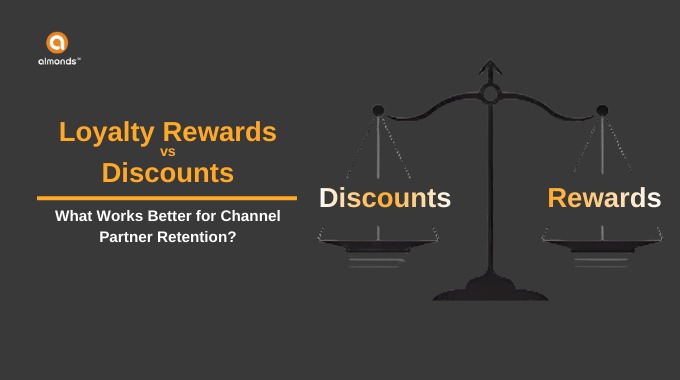Nowadays, environmental concerns are driving transformation across various sectors, including the clothing industry. As sustainability takes center stage, businesses seek innovative ways to align eco-friendly practices and achieve sustainability to build customer loyalty.
For this specific goal, green loyalty programs have emerged as a powerful tool that benefits brands and contributes to a more sustainable planet. Before we delve deep to examine its advantages, implementation strategies, and impact on the environment, specifically for the clothing industry, let’s start with the introduction.
Introduction of Green Loyalty Programs
Green loyalty programs are initiatives designed to promote eco-conscious behaviors among consumers while fostering brand loyalty. These programs reward customers for making environmentally responsible purchasing decisions and adopting sustainable habits.
Why Green Loyalty Programs Matter in the Clothing Industry
The fashion and clothing industry has a significant environmental footprint. It can be characterized by fast fashion, excessive waste, and resource depletion. These programs offer a strategic approach for clothing brands to mitigate these negative impacts by encouraging customers to choose sustainable fashion options.
Benefits of Implementing Green Loyalty Programs In Clothing Industry
There are a lot of benefits of green loyalty programs, but when it comes to the clothing industry, it increases significantly.
Reduction in Waste: As brands switch to sustainable practices, the first step they take is to try to decrease waste. But when there are rewards involved, then everyone takes part in it. Customers are involved through exchange offers; factories are engaged through the amount of recycled material used and less waste generation.
Environmental Stewardship: By promoting sustainable fashion choices, these programs directly contribute to using eco-friendly resources and degradable materials.
Brand Image: Companies prioritizing sustainability attract conscious consumers and create a positive brand reputation. It might be expensive initially, but it will be worth it in the long run.
Higher Engagement: Green loyalty programs create a sense of community and shared values among customers, fostering stronger brand relationships.
Data Insights: Valuable data on consumer preferences and behaviors can be collected through these programs, aiding in informed decision-making.
Strategies for Designing an Effective Green Loyalty Program
You might ask, “How do we implement green loyalty programs?” Let’s put this curiosity to rest. Shall we?
Transparent Communication: Communicate the program’s goals, rewards, and the positive impact of customers’ choices on the environment.
Rewards Variety: Offer a diverse range of rewards, such as discounts, exclusive collections, or charitable donations, to cater to different customer preferences. Here, brands can promote more eco-friendly products, which will help them grow and sustain.
Educational Content: Provide customers with information about sustainable fashion practices, helping them make informed choices.
Partnerships: Collaborate with ethical and eco-friendly fashion brands to enhance the program’s appeal and extend its reach.
How Green Loyalty Programs Influence Consumer Behavior
Green loyalty programs leverage behavioral psychology to encourage sustainable choices. By offering rewards, recognition, and a sense of belonging, these programs motivate customers to opt for environmentally responsible clothing options.
The Environmental Impact of Green Loyalty Programs
Research indicates that even small shifts in consumer behavior promoted by green loyalty programs can collectively result in reduced fashion waste, lower carbon emissions, and increased demand for sustainable production practices.
Challenges and Considerations in Implementing Green Loyalty Programs
Initial Investment: Setting up and promoting the program may require financial resources and marketing efforts.
Measurement and Reporting: Accurate customer engagement and environmental impact tracking are vital to showcase the program’s effectiveness.
Ethical Transparency: Customers seek authenticity; therefore, clothing brands must substantiate their sustainability claims.
The Future of Green Loyalty Programs in the Clothing Industry
As consumers’ demand for sustainable options continues to rise, green loyalty programs are expected to become a fundamental aspect of the clothing industry’s strategy. Brands that champion sustainable fashion will likely flourish in the evolving market landscape. Here is how the green loyalty program would impact the clothing industry:
- Sustainability as a Core Value: Green loyalty programs will focus on rewarding eco-conscious behaviors, encouraging customers to choose sustainable clothing options and reducing environmental impact. As the clothing industry shifts towards sustainability, these programs will be pivotal in retaining environmentally-aware customers.
- Integration of Circular Fashion: The best clothing loyalty programs will incentivize customers to participate in the circular fashion economy, offering rewards for returning, recycling, or upcycling clothes, thereby reducing waste and promoting sustainability.
- Transparency and Ethical Sourcing: Green loyalty programs in the future will highlight transparency in the supply chain, where brands reward customers for choosing ethically sourced products. This will increase customer trust and brand loyalty, particularly among eco-conscious shoppers.
- Personalized Rewards for Eco-Friendly Choices: AI-driven loyalty platforms will offer personalized rewards based on customer behavior, encouraging them to make greener choices. The future will see more brands offering points or discounts for purchasing sustainable fabrics, second-hand clothing, or opting for slow fashion.
- Partnerships with Environmental Organizations: Best clothing loyalty programs will extend beyond transactions, offering customers the opportunity to donate points to environmental causes or support green initiatives, fostering a deeper connection between consumers, brands, and sustainability efforts.
- Digital Engagement and Education: Brands will use loyalty programs to educate customers on sustainable fashion practices through digital platforms. Gamification elements like quizzes, eco-challenges, and green milestones will engage customers while reinforcing their commitment to sustainability.
- Blockchain for Traceability: Blockchain technology will play a critical role in green loyalty programs by providing traceability for eco-friendly clothing purchases, ensuring that customers know the origin and sustainability of their purchases.
Parting Thoughts
Green loyalty programs in the clothing industry serve as a bridge between consumer choices and environmental well-being. By encouraging shoppers to opt for sustainable fashion, these programs contribute to a more responsible and eco-conscious future.
Frequently Asked Questions
Here are some of the frequently asked questions for Green Loyalty Programs in Clothing Industry:
1. What is a green loyalty program in the clothing industry? A green loyalty program is designed to reward customers for making eco-friendly choices, such as purchasing sustainably made clothing, recycling old garments, or supporting ethical fashion practices. These programs aim to promote environmental responsibility while building brand loyalty.
2. What are the best clothing loyalty programs focused on sustainability? Some of the best clothing loyalty programs that focus on sustainability include brands like H&M’s Conscious Club, Patagonia’s Worn Wear program, and Eileen Fisher’s Renew. These programs incentivize customers to choose eco-friendly products, recycle clothing, and participate in circular fashion initiatives.
3. Why should clothing brands implement green loyalty programs? Clothing brands should implement green loyalty programs to align with growing consumer demand for sustainability. These programs help build stronger customer relationships, reduce environmental impact, and differentiate brands in a competitive market by promoting ethical and eco-conscious practices.
4. How do green loyalty programs benefit the environment? Green loyalty programs encourage customers to make sustainable choices, such as buying products made from eco-friendly materials, recycling old clothes, and reducing waste. By incentivizing these behaviors, brands help reduce their carbon footprint and contribute to the overall sustainability of the clothing industry.
5. Can small clothing brands implement green loyalty programs? Yes, small clothing brands can implement green loyalty programs by starting with simple initiatives like offering rewards for recycling old garments or discounts for purchasing sustainable fabrics. Platforms like Almonds AI make it easier for small brands to manage these programs effectively.
6. How do green loyalty programs differ from traditional ones? Green loyalty programs specifically reward environmentally responsible behavior, such as recycling, upcycling, or purchasing sustainable products. Traditional loyalty programs typically focus on rewarding purchases, but green programs emphasize actions that contribute to the sustainability of the fashion industry.
7. What future trends can we expect in green loyalty programs for the clothing industry? Future trends include personalized rewards for eco-friendly choices, partnerships with environmental organizations, blockchain-based transparency for sustainable products, and increased customer engagement through digital platforms that educate and reward eco-conscious behavior.
8. How can customers participate in the best clothing loyalty programs focused on sustainability? Customers can participate by purchasing products from brands with green loyalty programs, recycling or donating old clothes, and supporting ethical fashion choices. These programs typically offer rewards like discounts, points, or the ability to contribute to environmental causes.
9. How do AI-driven platforms enhance green loyalty programs? AI-driven platforms like Almonds AI can personalize rewards based on customer behavior, track sustainability milestones, and provide real-time insights. This helps clothing brands optimize their green loyalty programs, improving customer engagement and loyalty.







